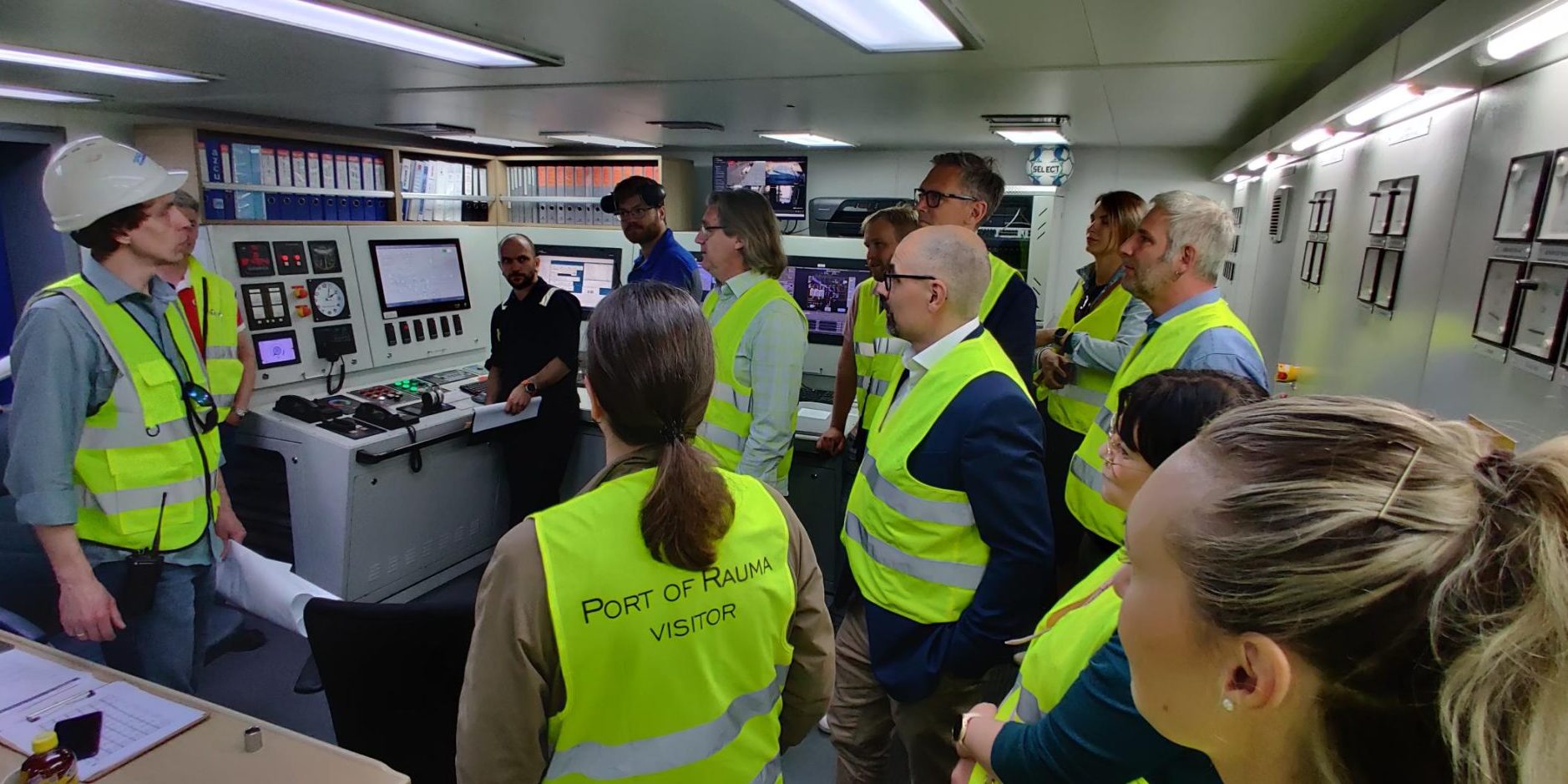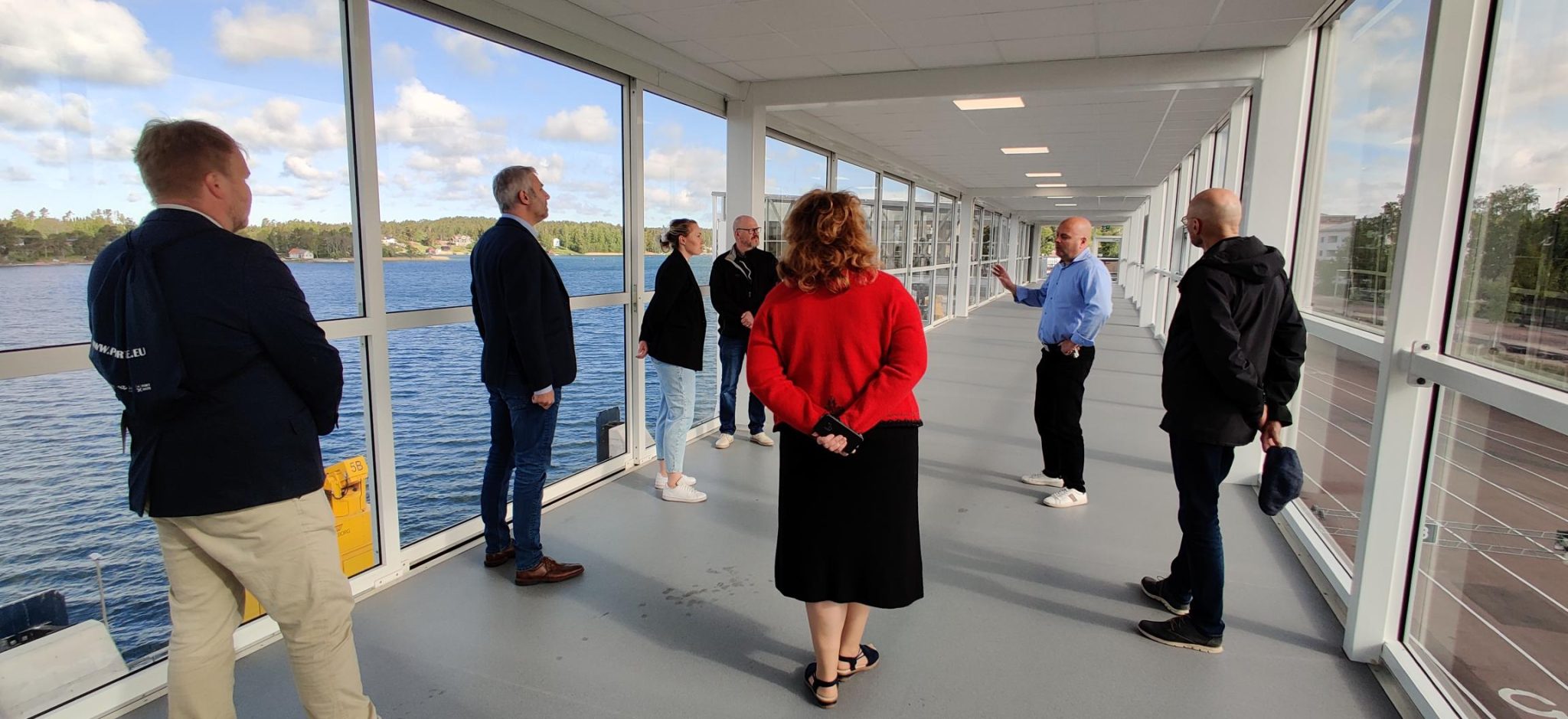We reseach: The cooperation of Sustainable Flow reduces carbon dioxide emissions
In stereotypes, research is carried out by a lone professor, mumbling in his "ivory tower", his hair white and messy. In reality, research requires close interaction with and between experts and stakeholders. This interaction takes place in meetings, seminars, and events, both face-to-face and online.

Life and business in the Baltic Sea countries depend on maritime transport. On a global scale, 15% of all goods are transported across the Baltic Sea region. Transport and operations in the logistics chain consume fuels and energy. The fuels used by most ships are still fossil, i.e. non-renewable. The combustion of fossil fuels produces carbon dioxide (CO2), which is the main greenhouse gas contributing to the climate crisis. The climate crisis has multiple impacts on the whole planet.
The Sustainable Flow (Sustainable flow of goods and decreased CO2 emissions of transportation) project reduces CO2 emissions in and around ports, focusing on activities in the Interreg Central Baltic region. The project involves seven different partners from Finland (including Åland), Estonia, Latvia, and Sweden. Research and solution development will be carried out in close cooperation with the seven pilot ports. The project will contribute to all three pillars of sustainable development: environment, economy, and social sustainability. This means that the solutions developed are not only environmentally friendly but can be implemented in a way that is economically reasonable to put into practice. The solutions also genuinely support the work and skills of the industry.

The Sustainable Flow projext is developing three ways to reduce carbon emissions: digital tools for ships and port operations entering the port, energy saving measures, and renewable energy sources in ports. Results are achieved by close cooperation and communication between the different actors, which has already been very close: the partners have been communicating and working together since the conceptual phase of the project - now more than 1.5 years.
COVID-19 pandemic influenced the preparation of the project, as cooperation was only carried out via email and Teams. The partners met for the first time in Rauma during the first month of the project in May 2023. The focus of the meeting was to clarify the rules of funding and what to do in practice, but the agenda included visits to the pilot ports in Rauma and Pori and the social programme as well.


Various presentations, debates, and showcases reinforce external communication. In the Åland Islands, the 48-hour period between May and June included a partner meeting with SAMK, Högskolan på Åland and Fintraffic VTS Ltd, participation in the Maritime Days (Sjöfartens Dag i Åland), a visit to the pilot port of Mariehamn, and a press conference.
Sustainable Flow has been presented online and face-to-face. A Brown Bag session with joint European universities was held on the theme of sustainable development. The annual seminar on Finnish Waterways in Rauma featured a panel discussion on the impact of environmental legislation on the sector. Project leader Minna Keinänen-Toivola gave a presentation on internal and external communication at a seminar for all project leaders organised by the funder. An important target group are also "ordinary people". Keinänen-Toivola gave an expert lecture on "Rauma and the Baltic Sea" to secondary school students at Rauma Lyseo. In both events, Sustainable Flow was a practical example.



The concrete results of Sustainable Flow will be 1) a digital tool to support carbon dioxide reduction and energy saving measures and 2) a concept for energy savings and renewable energy production in ports as transportation hubs. The tools and concepts of the project will be used by the pilot ports, but also by other ports. Close cooperation from the very beginning of the project will ensure that the project does the right, productive things to reduce CO2 emissions in line with the principles of sustainable development.
Did you know?
- The Sustainable Flow project is led by Satakunta University of Applied Sciences, Maritime Logistics Research Center.
- The Sustainable Flow project (duration 1.5.2023–31.5.2026) is funded by the Interreg Central Baltic programme with a total budget of 3.4 million euros.
- Sustainable Flow has seven pilot ports in Rauma, Pori, Mariehamn, Tallinn, Riga, Norrköping, and Oxelösund.
- Sustainable Flow aims to reduce carbon dioxide emissions in the pilot ports by 10%.
